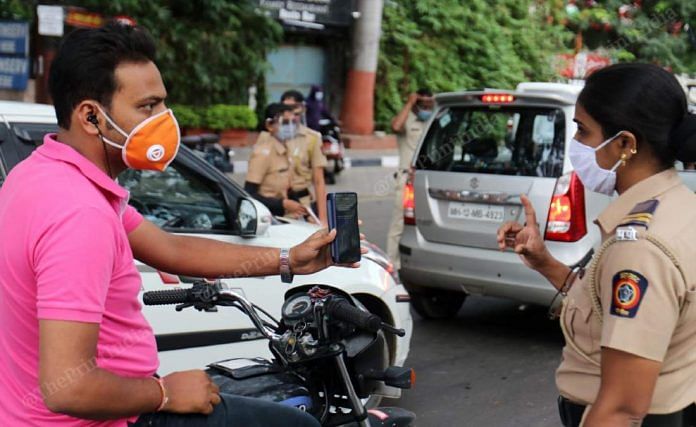Mumbai: More than half the people tested during Pune’s first serological survey were found to have developed antibodies against the novel coronavirus.
The study, conducted between 20 July and 5 August in five high-incidence administrative wards of Pune, shows that an average of 51.5 per cent of the people had been infected by Covid-19. The incidence ranged from 36.1 per cent to 65.4 per cent in the selected areas.
As many as 1,664 samples were collected for the survey from across the five wards with a collective population of 3.66 lakh. The study does not include any sample from Pune’s active containment zones, the technical report of the survey said.
“The study indicates that there has been an extensive spread of infection in the five prabhags studied: seroprevalence ranging from 36.1% to 65.4% and it is substantive across all types of dwellings,” the summary report said.
The study cautioned that the high seroprevalence is not necessarily an indicator of “population level immune protection”.
The survey was conducted by the Savitribai Phule Pune University, the Indian Institute of Science Education and Research, Faridabad’s Translational Health Science and Technology Institute and Vellore’s Christian Medical College along with the Pune Municipal Corporation, and was funded by the Persistent Foundation.
Pune has steadily turned into one of India’s Covid hotspots, having overtaken Mumbai in the total number of positive cases. The district, comprising Pune city and rural areas and Pimpri-Chinchwad, has reported 1.3 lakh Covid cases, of which 41,020 are currently active, according to state government statistics dated 17 August. In comparison, Mumbai has recorded 1.28 lakh Covid cases, 17,825 of them active.
Last month, a serological survey in Mumbai showed antibodies in 57 per cent of the sampled slum population and 16 per cent of those tested from city’s buildings. In Delhi, the figure was at 23 per cent until the first week of June. Cities are conducting sero surveys to determine the extent of the spread of Covid through random sampling and ascertain how many have developed antibodies against it.
Also read: Indore and Delhi include children in their sero surveys. Here’s what experts think
Higher spread in slums but buildings, bungalows hit too
The wards included in the Pune survey are Yerawada, Kasbapeth-Somwarpeth, Rastapeth-Ravivarpeth, Lohiya Nagar-Kasewadi and Navipeth-Parvati. Of these, Lohiya Nagar-Kasewadi showed a seroprevalence of 65.4 per cent, says the technical report.
Like Mumbai, the Pune survey too shows a higher spread in slum areas — hutments and tenements where the size of a living unit is less than 150 square feet and there are shared toilets.
Pune’s survey found Covid-19 antibodies in 62 per cent of the samples from hutments and 56.2 per cent of those from tenements. Those living in units smaller than 150 sq ft, and without individual toilets, showed seroprevalence as high as 59.6 per cent and 62.3 per cent, respectively.
However, while only 16 per cent of the population sampled from Mumbai’s buildings showed sero-positivity, this number was also high in Pune — 43.9 per cent among those living in bungalows and 33.2 per cent in apartments.
Also read: Modelling, testing, sero survey, vaccine — 4 lessons India learnt from 4 months of Covid
Lower incidence in those above 66 years
The Pune survey revealed that seroprevalence is the lowest in the age group of over 66 years, possibly explaining its contained mortality rate of under 2.5 per cent.
The survey results showed 39.8 per cent of those over 66 years had sero-positivity as against 52.5 per cent in the 18-30 age group, 52.1 per cent among those aged between 31 and 50 years and 54.8 per cent in the age group of 51 to 65.
Also, unlike the Mumbai survey, which showed more men having been infected than women, the Pune survey did not throw up any marked gender differences. Of those surveyed, 52.8 per cent men and 50.1 per cent women showed seroprevalence.
Also read: Andhra Pradesh begins sero survey, will cover 4 districts in 6 days to collect 15,000 samples



